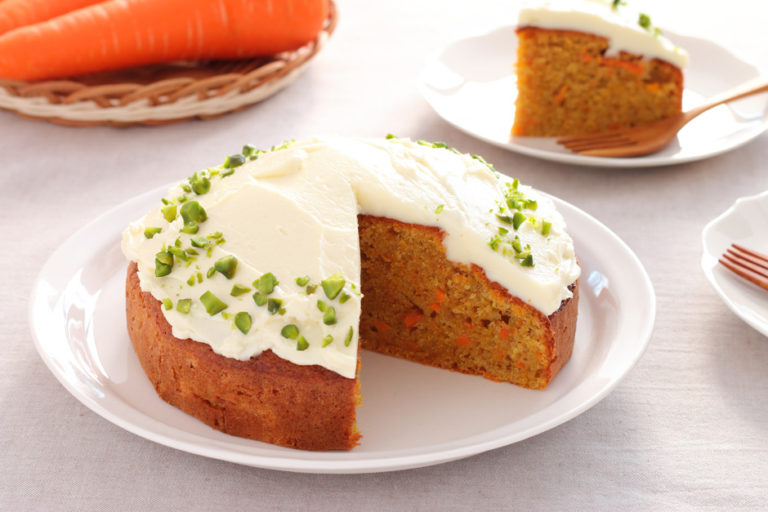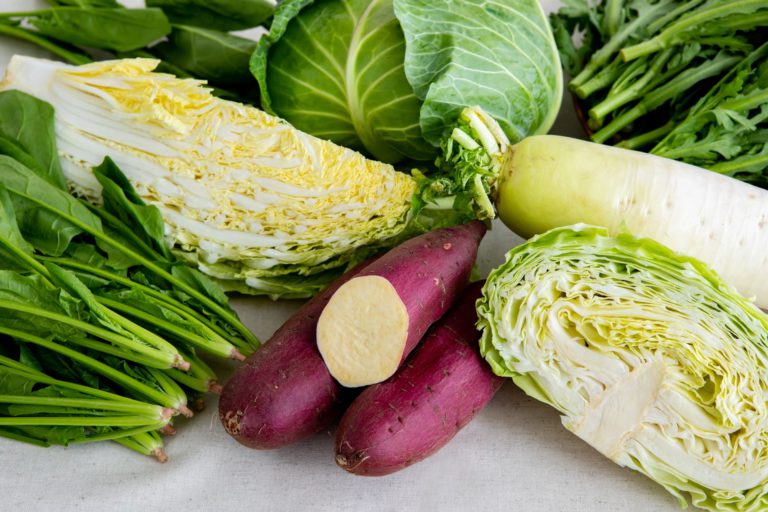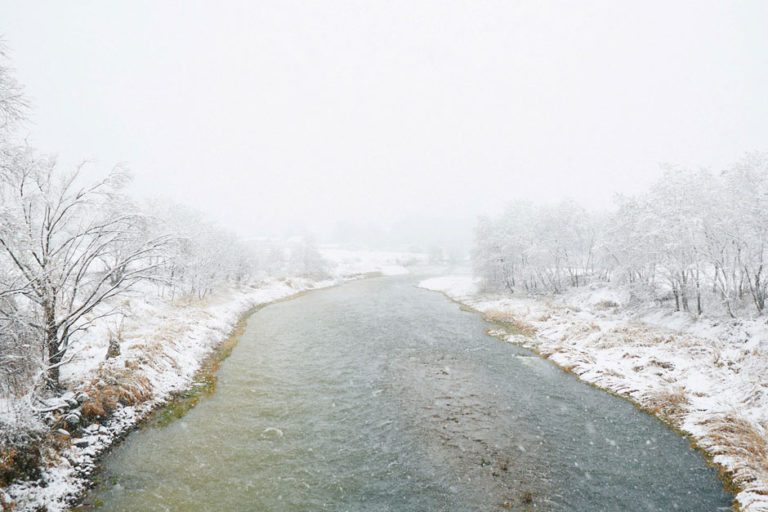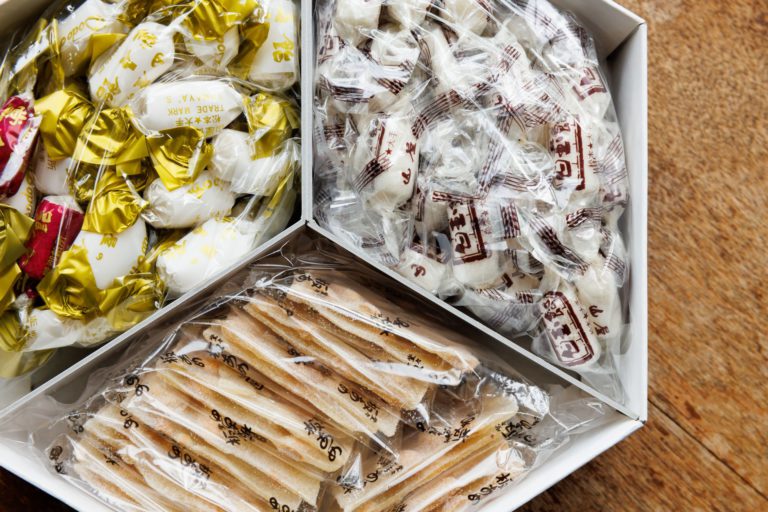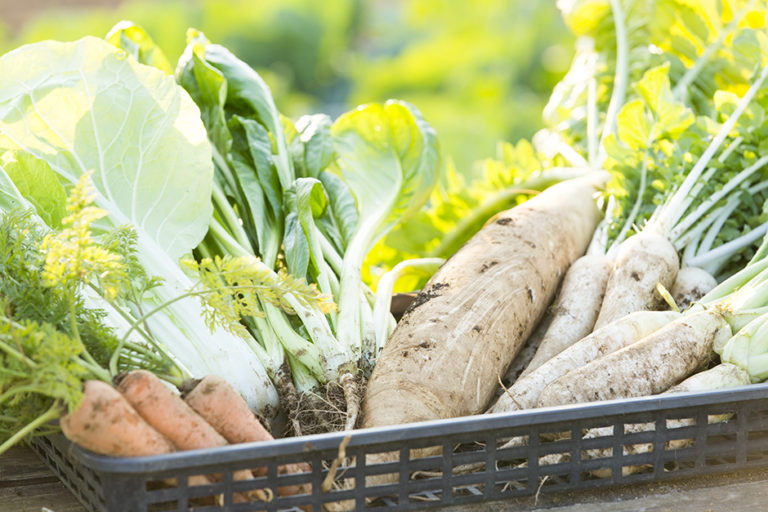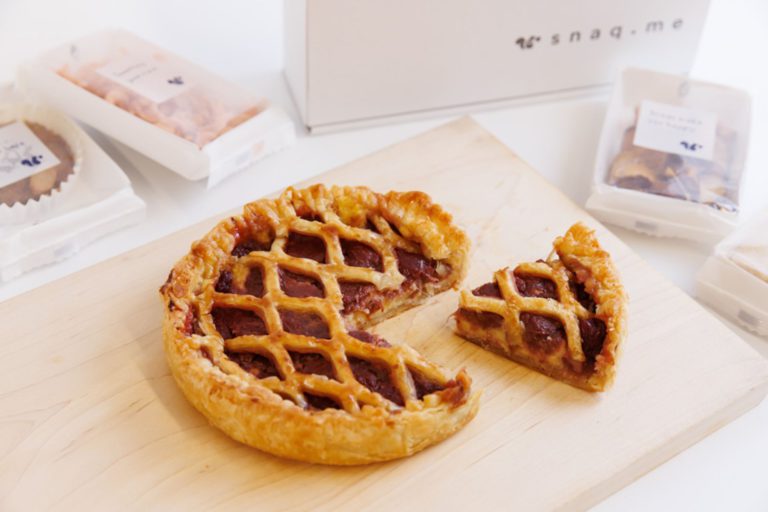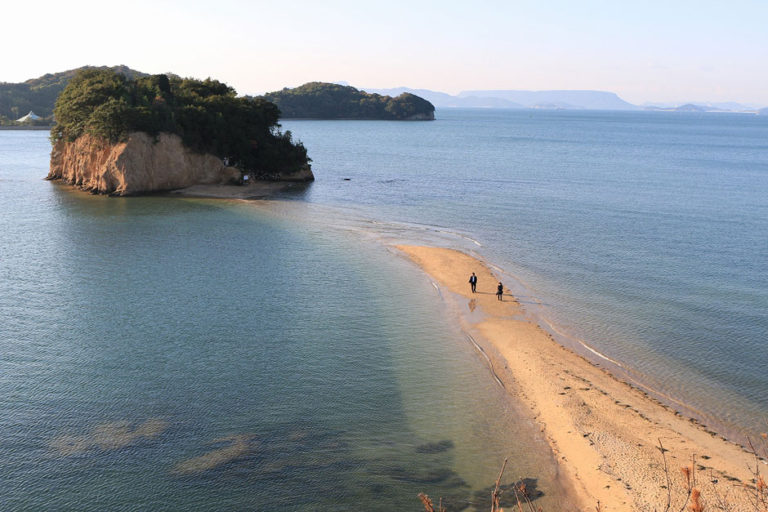Snow Carrots that Grow Strong and Sweet under the Snows of Japan’s Northern Regions
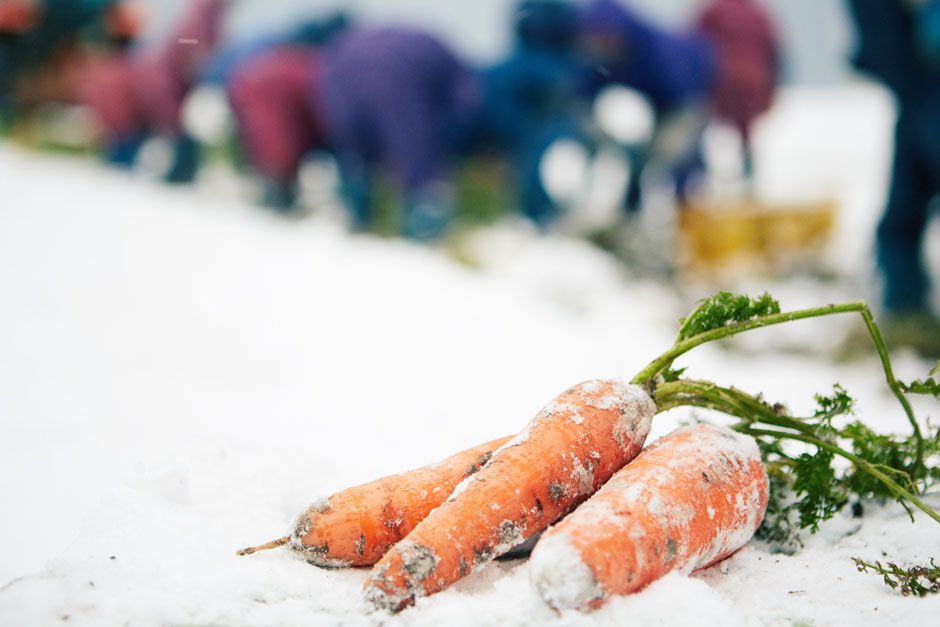
The flavor is maximized under the snows of intense coldness
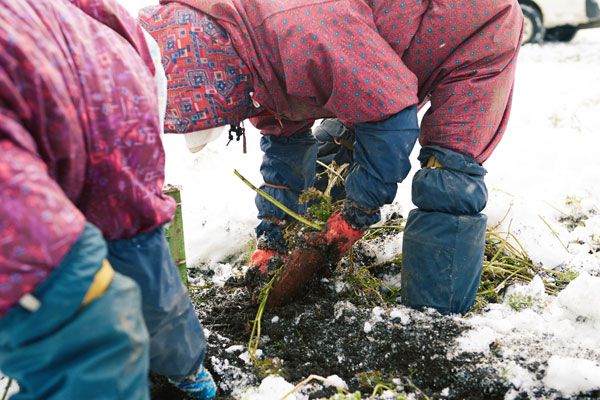
Fukaura Snow Carrots are grown on high grounds about 180 to 200 m high spread across the foot of Shirakami-Sanchi. The temperature is minus 3°C. Amid the freezing wind and scattering snow, Fukaura Snow Carrots are carefully dug out one by one, by hand.
Fukaura Snow Carrots are harvested between December and the end of March.
Normal carrots can be harvested in three months at the earliest after planting seeds, but Fukaura Snow Carrots are slowly grown for more than five months under the ground until they are ripe.
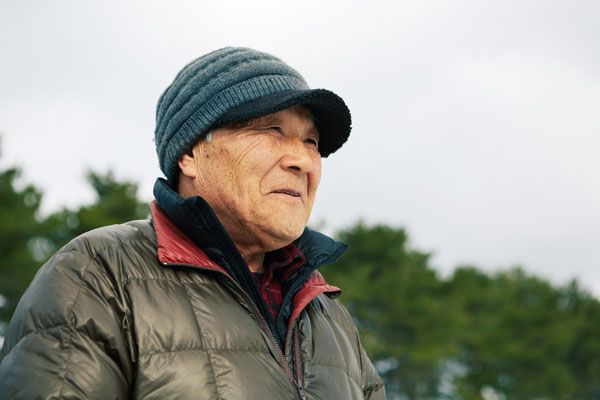
There is also an important reason in harvesting the carrots during the harsh winter season, when it is by far the coldest time of the year.
“Carrots protect themselves from freezing by converting starch into sugar when it gets cold. This increases their sugar content, and the carrots grow having much umami (pleasant savory taste). The snow covering the carrots is also important. It acts as a blanket and keeps the temperature of soil at around 0°C, allowing us to harvest the carrots at their best condition when they are just about to freeze,” says Masato Sakamoto, the representative director of Henashi Kono Kumiai (agricultural union) and also the father of Fukaura Snow Carrots.
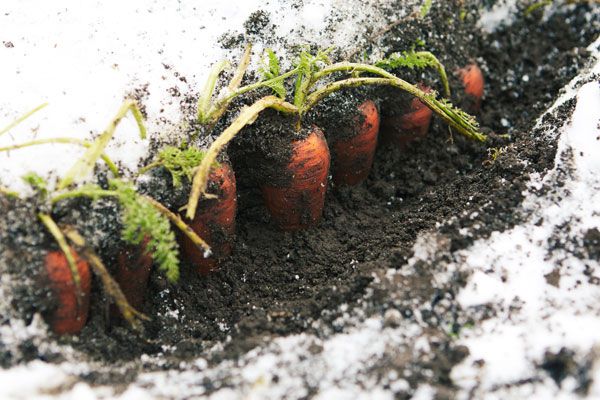
Compared to normal carrots, with about 7 degrees in sugar content, Fukaura Snow Carrots average 10 degrees in sugar content.In addition, umami components, such as glutamic acid and beta-carotene, included in Fukaura Snow Carrots are about 1.5 times more than those of normal carrots.
Sakamoto told us that the sweet and full-flavored Fukaura Snow Carrots are grown in an environment that includes Shirakami-Sanchi’s pure underground water combined with the Sea of Japan region’s distinct climate of being cool in the summer and not too cold in the winter and Fukaura’s optimal environment for growing with sea breeze from the ocean.
Fukaura Snow Carrots were created by chance
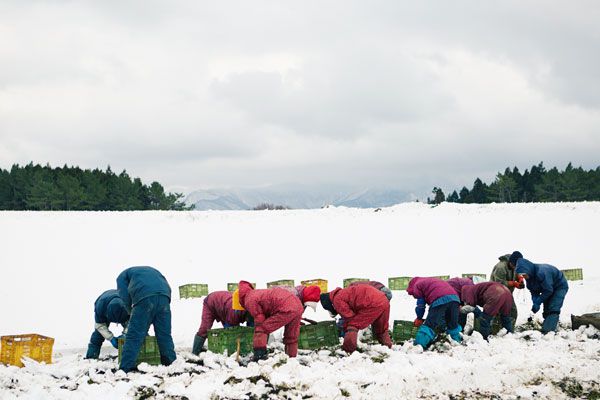
Sakamoto served us freshly made 100% Fukaura Snow Carrot juice, which was astonishingly sweet. The juice was also free of the distinctively grassy flavor of carrots, and instead had a very smooth taste. Sakamoto smiles, “Isn’t it delicious?”
Originally a fisherman, Sakamoto started farming after establishing the Henashi Kono Kumiai with friends in 1976. He was faced with the issue of his income decreasing during the winter, when work was interrupted due to snow. Amid such circumstances, he one day dug out the delicately-grown carrots he thought were damaged from the heavy snow that occurred at the end of the fall, and was surprised with how delicious they tasted.

Sakamoto then developed the snow carrot after becoming confident of its success, began growing them about 20 years ago, and successfully branded the carrots as “Fukaura Snow Carrots” in 2008.
“Harvesting amid the harsh winter season is not easy, but I’m much happier than being away from my family for half a year to work outside in a warmer place,” Sakamoto exclaims.
Fukaura Snow Carrots currently yield about 1,000 tons each season. Sakamoto tells us that he needs more producers.
“We have increased the number of customers from about 10 years ago, but we don’t have enough harvest to supply to everyone. I want to grow the carrots together with the entire town because they can be grown with the same methods as long as they are within the town. Moreover, the Fukaura name would become more widely known if we increase shipping to other prefectures.”
Making Fukaura Snow Carrots the best specialty of the town
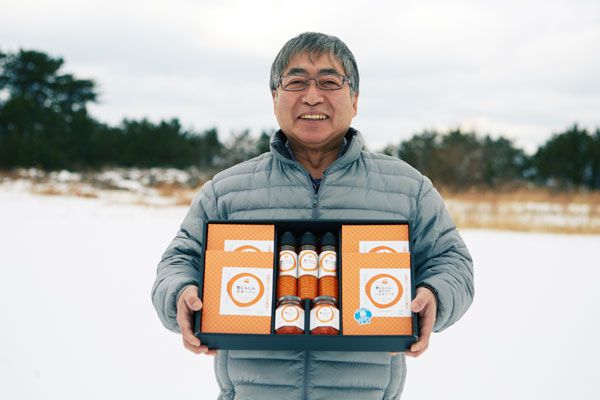
Fukaura local residents are also trying hard to make Fukaura Snow Carrots the town’s signature product.
Visitors can find various foods in the town that use Fukaura Snow Carrots as a result of various product developments.
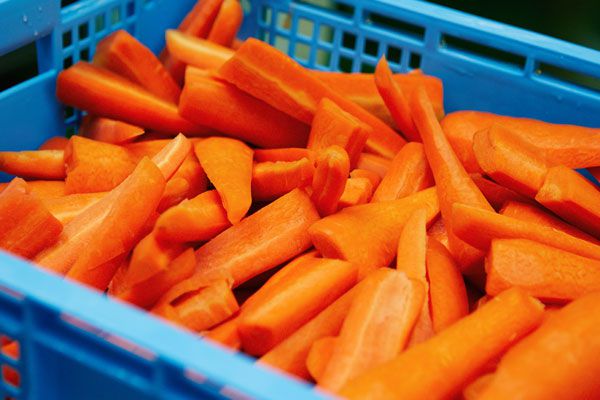
The Fukaura Agricultural and Fishery Product Processing Plant manufactures the products under the name of “Snow Carrot Series” that use the carrots. In addition to the four products of dressing, jam, pasta sauce and potage currently being sold, the plant also produced primary processed products, including pastes, powders and diced cuts for commercial use.
Yoshihiko Shimamoto, the plant manager who is responsible for product development, told us that the key is to use steam to heat the carrots.
By heating the snow carrots for 9 to 10 minutes at a temperature of 100°C, he claims the Fukaura Snow Carrots can retain their distinct sweetness and maximum flavor compared to boiling them.
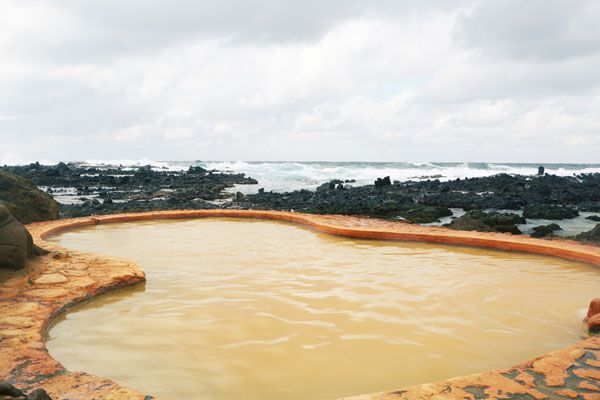
“The carrots themselves are delicious, so we are careful about leveraging their original taste when developing products. Fukaura Snow Carrots go great with milk and fresh cream.”
Shimamoto says, with excitement, that he will increase the products that take advantage of the Fukaura Snow Carrot flavor.
The Koganesaki Furofushi Onsen hotel, known for its breathtaking open-air bath that faces the Sea of Japan, also offers Fukaura Snow Carrots.
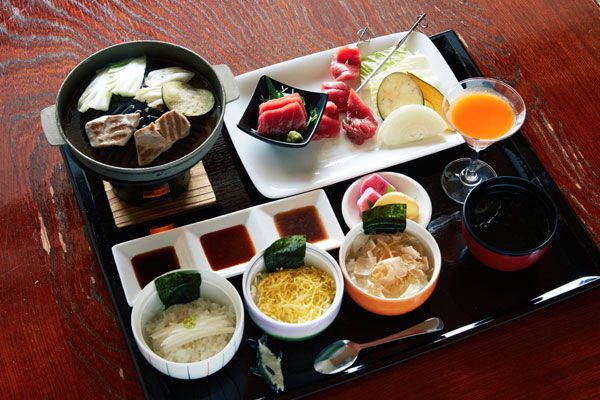
Dishes with Fukaura Snow Carrots are frequently served at Koganesaki Furofushi Onsen, such as juice for breakfast and ice cream for dessert after dinner. Fukaura Snow Carrot mochi, very well-received by tourists, is also sold as souvenirs to bring home.
In addition, jello desserts with Fukaura Snow Carrots are also offered with the “Fukaura tuna steak rice bowl” in which wild Fukaura tuna can be enjoyed in various forms. Imagine the blissful moment you taste Fukaura Snow Carrot desserts after enjoying Fukaura’s treasured tuna.
Fukaura carrot juice produced by JA Tsugaru Nishikita is recommended for visitors who want to conveniently taste Fukaura Snow Carrots. The juice is a very popular product with many repeat customers, and many orders come in from outside the prefecture.
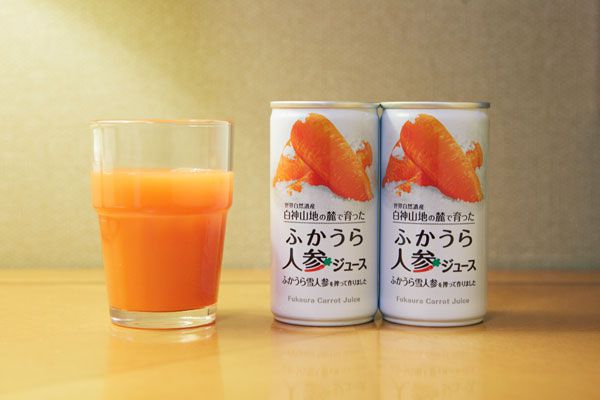
Fukaura carrot juice, with lemon juice slightly added for subtle flavor, is sweet enough even without adding sugar. Toshiyuki Iwaya of JA Tsugaru Nishikita exclaims, “We have received many comments that children who hated carrots were able to drink the juice.”
Fukaura Snow Carrots are cultivated by the severe natural characteristic of Japan’s northern regions. Its extraordinary sweetness and delicious flavor have been upgraded to various products by local residents to captivate people who have tasted them. Try Fukaura Snow Carrots once and you’ll see the reason why.
Fukaura Snow Carrots from Fukaura
Source:Masato Sakamoto, Representative Director of Henashi Kono Kumiai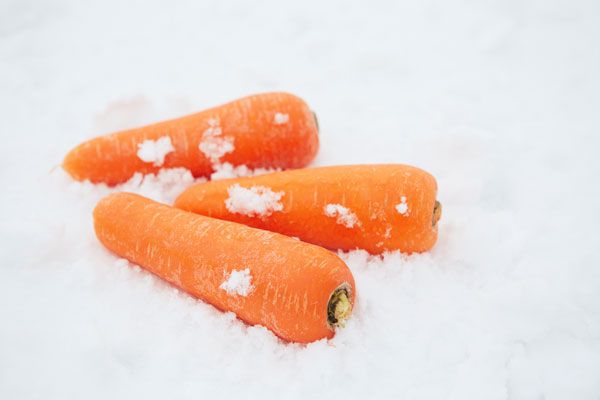
Peak Season
– January to mid-February
Tips
– Carrots with more color around the core when sliced
– Round carrots
– Carrots that are slightly large (about 250 g)

